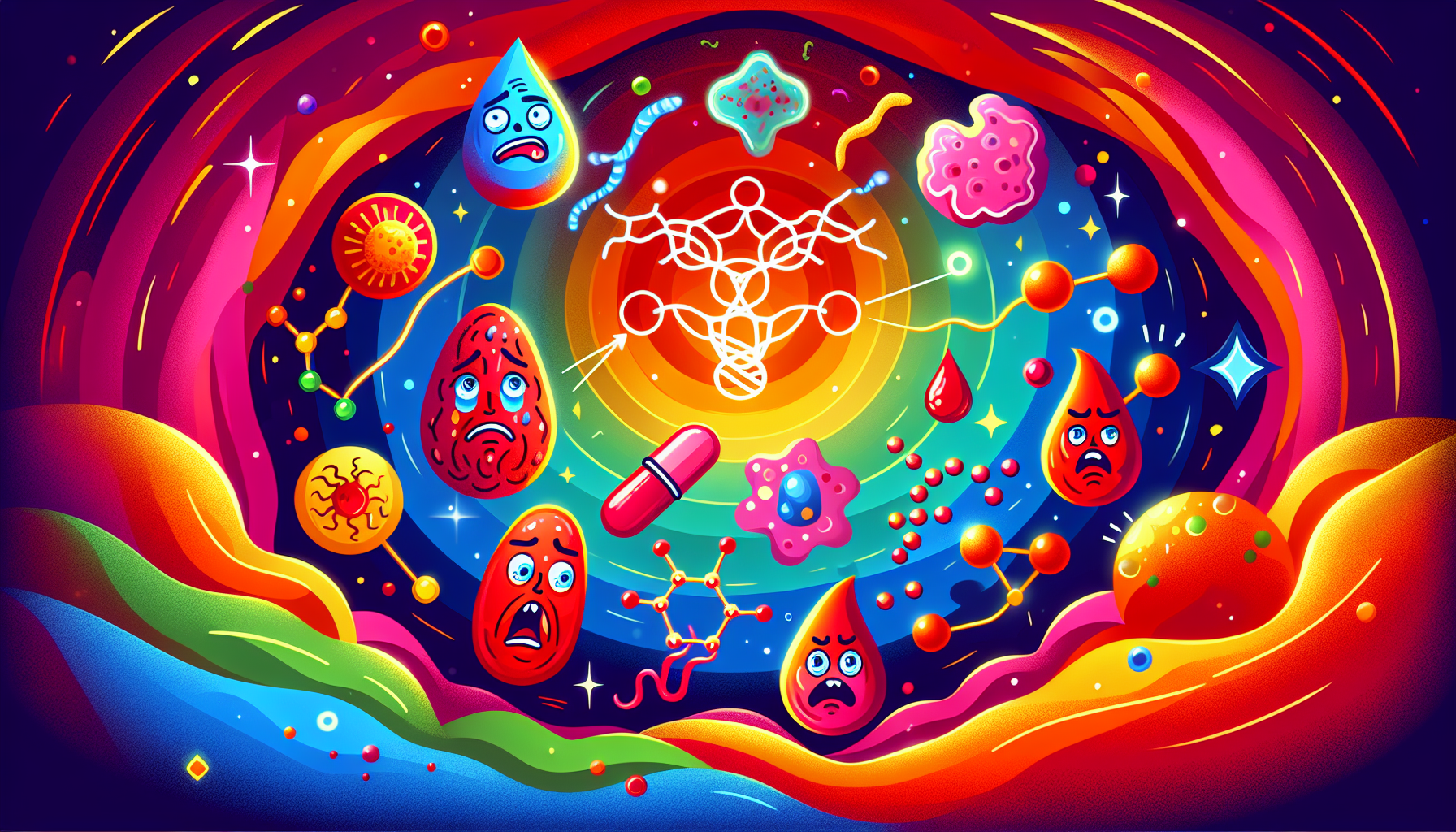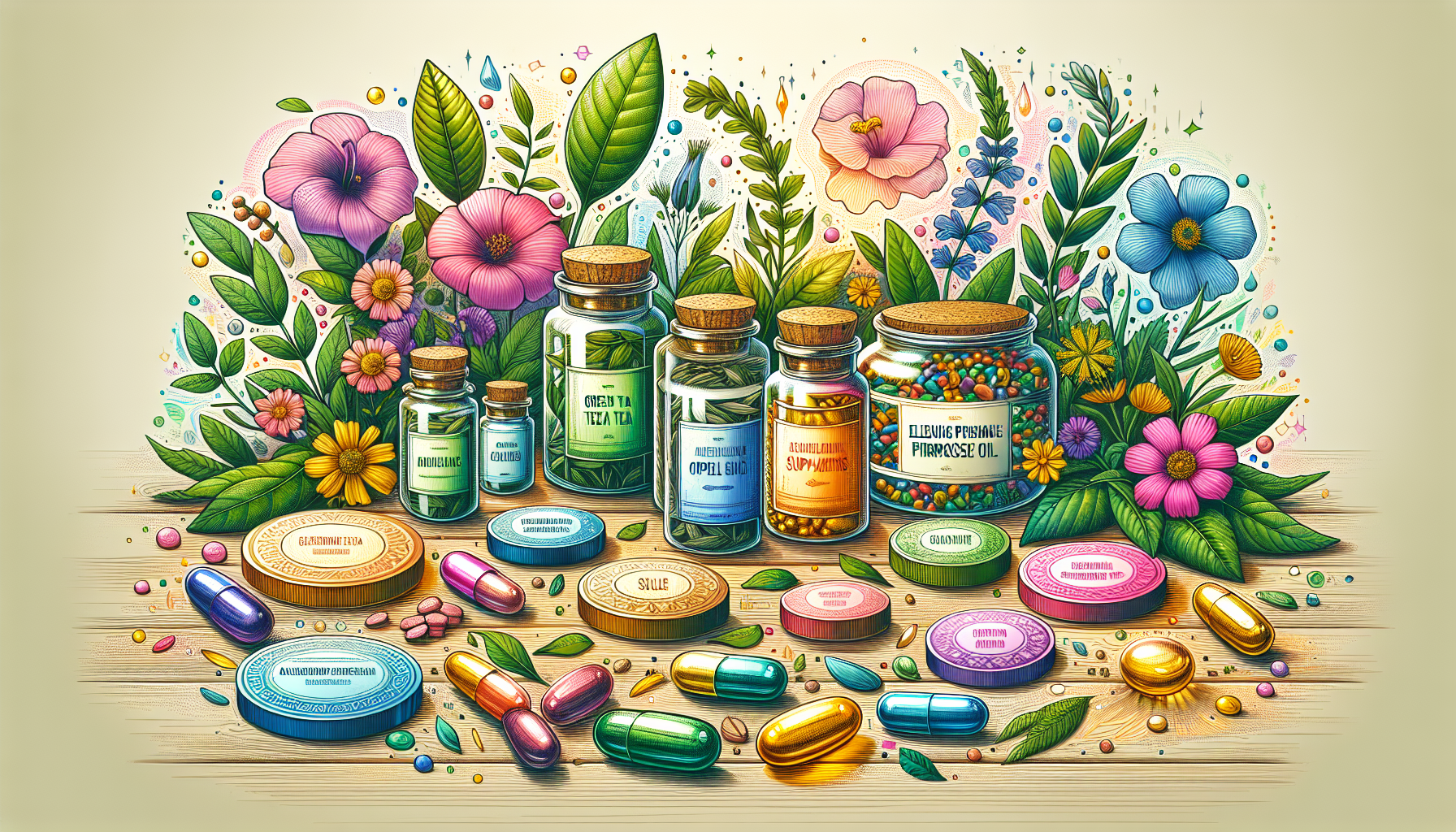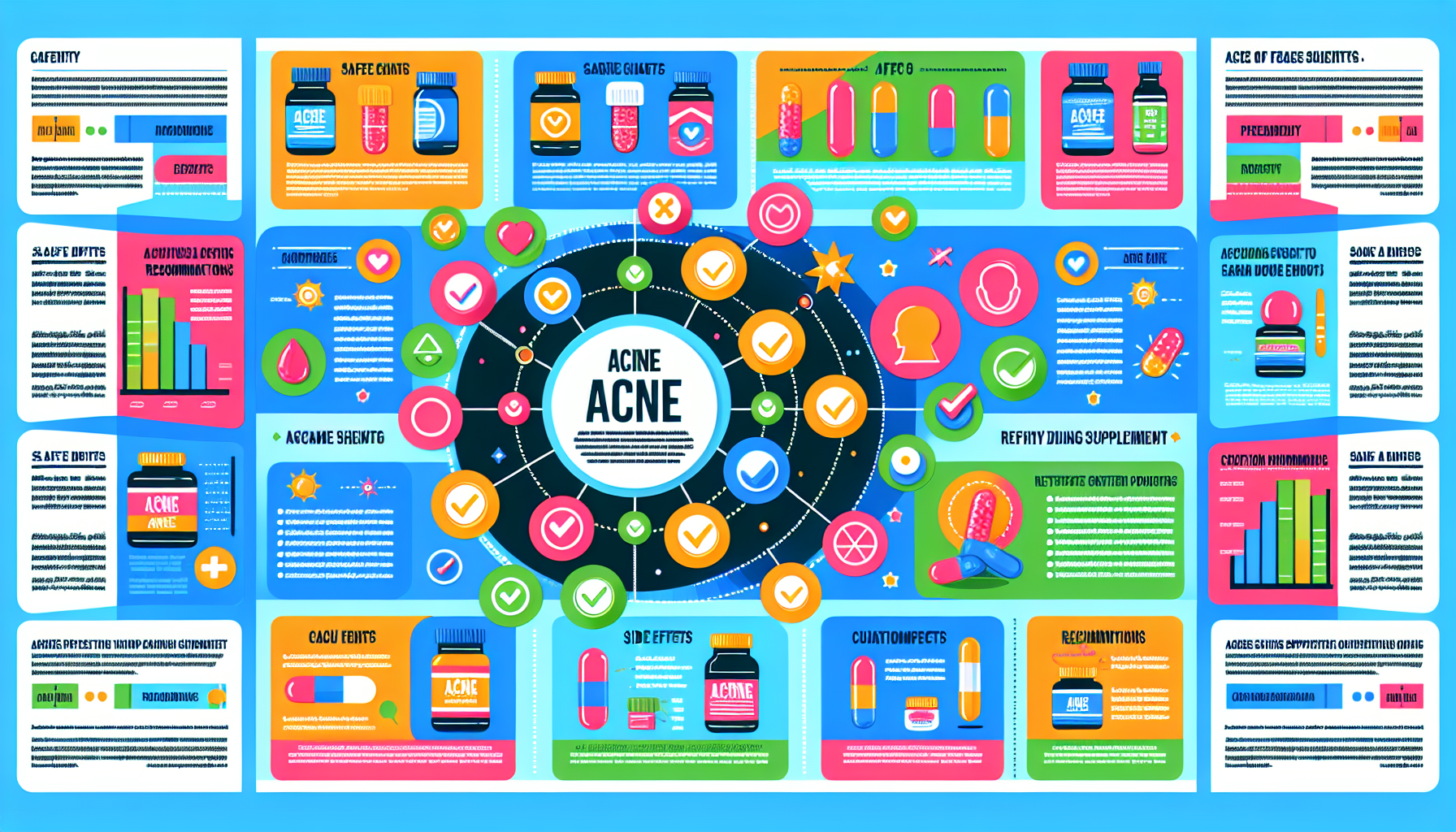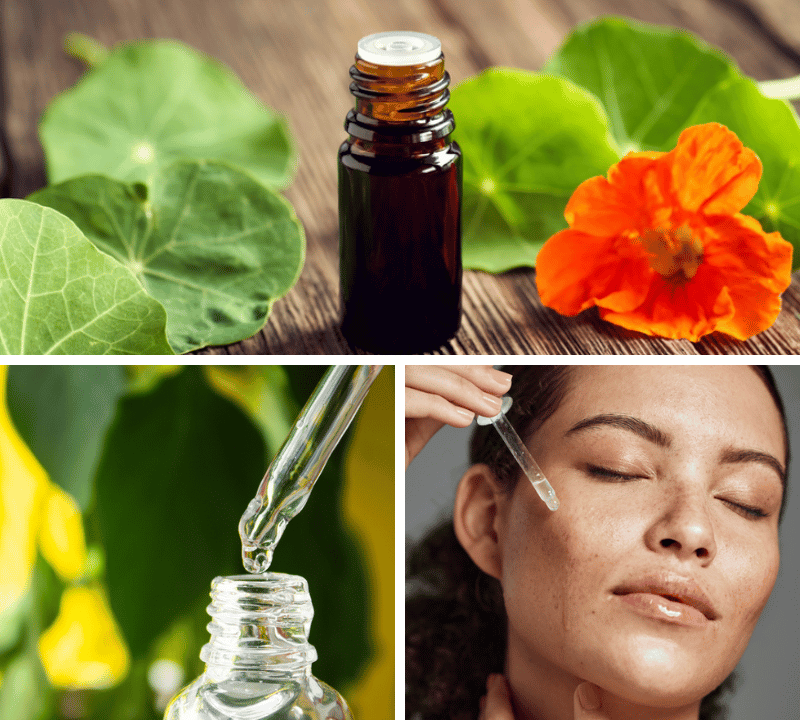Acne can be a frustrating skin condition that affects not only your appearance but also your self-confidence. Whether you're dealing with the occasional breakout or more persistent acne lesions, understanding the underlying factors and how to address them can make all the difference. This comprehensive guide explores the best supplement for acne, detailing how various vitamins, minerals, and herbal supplements can target the root causes of acne and promote clearer, healthier skin.
Dietary imbalances and hormonal fluctuations are often critical contributors to acne. Addressing these through targeted nutritional support can significantly enhance your skin's health. Supplements such as vitamin D, zinc, and pantothenic acid play pivotal roles in managing sebum production and reducing inflammation, key factors in the development of acne. Additionally, this article delves into the science behind popular supplements like green tea extract and fish oil, known for their anti-inflammatory properties and ability to improve skin barrier function. As we navigate the complex landscape of acne treatment, it's essential to prioritize safety and efficacy. Consulting with a healthcare professional before starting any new supplement regimen is crucial to ensure you choose the best path toward achieving more transparent skin.
Key Takeaways
- Acne development is influenced by hormonal imbalances, diet, and nutrient deficiencies, making understanding these factors essential for effective treatment.
- Supplements such as vitamins A, D, and zinc, essential fatty acids, and herbal extracts can significantly improve acne symptoms and support skin health.
- Safety and efficacy of acne supplements are critical; consulting healthcare professionals before starting any supplement regimen is advised to avoid potential side effects.
Understanding Acne and Its Causes

Acne, or acne vulgaris, is one of the most common skin disorders characterized by pimples, blackheads, and cysts. The severity of existing acne can range from mild to severe, often leading to significant skin inflammation and acne lesions. Understanding what causes acne is the first step towards effectively treating it.
Hormonal imbalances are a primary culprit in the development of acne. High levels of androgen hormones, such as testosterone and DHEA-S, increase sebum, the oily or waxy matter produced in hair follicles.
Excess sebum, combined with dead skin cells, clogs pores and creates an environment where acne-causing bacteria can thrive.
Conditions that can exacerbate these hormonal changes include:
- Puberty
- Pregnancy
- Menopause
- Polycystic ovary syndrome (PCOS)
The diet also plays a crucial role in skin health. High glycemic load diets, rich in processed foods and dairy products, can worsen acne by increasing insulin levels and affecting hormone concentrations. Conversely, a nutrient-dense diet can support healthier skin and reduce acne. Vitamins and minerals, such as A and D, are essential for skin health and can influence keratinocyte (primary skin cells in the outer layer) proliferation, linking them to acne development.
Acne results from various factors such as hormonal imbalances, diet, and nutrient deficiencies. Addressing these root causes helps reduce acne severity and achieve clearer skin.
How Supplements Can Improve Acne

Dietary supplements can significantly impact acne treatment by tackling its root causes. While a nutrient-rich diet helps, supplements can fill in the gaps. Research indicates that oral supplements can prevent, treat, and reduce acne lesions, providing a practical solution for skin breakouts.
Specific vitamins and minerals are particularly effective in managing acne. For instance, zinc supplementation has been shown to reduce inflammation and sebum production, which are critical in managing acne symptoms. Vitamins like A and D can alleviate acne symptoms and prevent future outbreaks by supporting skin health and combating acne-causing bacteria.
Herbal supplements and probiotics also contribute to acne treatment. They offer anti-inflammatory and antimicrobial benefits, helping to manage inflammatory acne vulgaris and improving overall skin health. By incorporating these supplements into your routine, you can target the underlying issues that lead to acne and enjoy clearer, healthier skin.
Top Vitamins and Minerals for Acne Treatment
Vitamins and minerals are fundamental in maintaining healthy skin and treating acne. Specific nutrients like Vitamin D, Zinc, and Vitamin A have been identified as particularly beneficial.
Here’s how these specific supplements can enhance acne treatment and support clearer skin.
Vitamin D
Vitamin D is renowned for its anti-inflammatory properties, which can significantly reduce acne severity. This fat-soluble vitamin helps combat acne-causing bacteria on the skin, promoting a healthier complexion. Good dietary sources of vitamin D include fatty fish, fish oil, yeast, liver, and eggs, making it accessible through diet and supplements.
The role of vitamin D in skin health extends beyond its anti-inflammatory effects. It assists in regulating the immune system, which is crucial in managing inflammatory skin conditions like acne. By maintaining adequate vitamin D levels through dietary supplements or sunlight exposure, you can help reduce the frequency and severity of acne breakouts.
Adding vitamin D to your daily regimen through supplements or diet can lead to clearer skin. It enhances skin barrier function and reduces inflammatory responses contributing to acne, making it a crucial component of treatment.
Zinc: A Cornerstone Mineral for Acne Management
Zinc has emerged as a key player in the battle against acne due to its ability to reduce sebum production and shield against infections. By curbing oil output and inflammation, zinc supplementation can enhance skin health and decrease the frequency of acne lesions. The mineral's anti-inflammatory properties are especially advantageous, as they help modulate the immune response and alleviate the redness and swelling commonly associated with acne breakouts. Adhering to the appropriate dosage tailored to individual needs under professional guidance is crucial to harness zinc's full potential.
Incorporating zinc into your acne treatment regimen offers a dual benefit: it reduces sebum production and effectively transports vitamin A, amplifying its anti-acne advantages. As you consider integrating zinc into your skincare routine, exploring combinations with other supportive minerals for holistic health benefits is also beneficial.
For those intrigued by the synergistic effects of essential trace minerals, our article "The Health Enthusiast's Dream: Five Of The Best Zinc and Selenium Supplements You Need to Know" explores the powerful combination of Zinc and Selenium. These supplements provide a dual approach to combating acne through zinc’s immune modulation and selenium’s immune enhancement, and they support overall health effectively. Discover our top five picks for Zinc and Selenium supplements and learn how these vital nutrients can be part of your health regimen.
Vitamin A
Vitamin A is crucial for maintaining skin health and treating acne. It promotes the shedding of dead skin cells and reduces inflammation, key factors in preventing clogged pores and acne breakouts. Topical retinoids, derived from vitamin A, are known to diminish the appearance of acne scars and improve skin texture over time.
The antioxidant properties of vitamin A protect skin cells from free radical damage, potentially slowing the aging process and keeping the skin looking youthful. Additionally, vitamin A can reduce redness and inflammation, further aiding in managing acne symptoms.
However, it’s important to note that retinoids can increase sensitivity to UV rays, so adequate sun protection is essential when using these treatments. Including vitamin A in your skincare routine through supplements or topical applications can result in clearer, healthier skin.
Essential Fatty Acids for Skin Health

Essential fatty acids, particularly omega-3s, are vital for maintaining skin health and reducing acne severity. These fatty acids possess anti-inflammatory properties that can significantly help manage acne and improve overall skin condition.
Let’s explore two key sources of these beneficial fatty acids: fish oil and evening primrose oil.
Fish Oil
Fish oil is renowned for its high content of omega-3 fatty acids, particularly EPA and DHA, which have strong anti-inflammatory properties. Studies suggest that supplementing with fish oil can lessen acne severity by reducing skin inflammation and controlling sebum production, making it a crucial component of any acne management strategy. The impact of fish oil goes beyond merely addressing acne; it also enhances overall skin health by decreasing the number of inflammatory acne lesions and alleviating redness and swelling. The result is a clearer and more vibrant complexion, establishing fish oil as an indispensable supplement for individuals battling moderate to severe acne.
Including fish oil in your regimen can markedly improve your skin's condition. Its omega-3 fatty acids effectively diminish skin inflammation and fortify the skin barrier, offering a robust solution for acne challenges.
Our article "From Algae to Awesomeness: Five of the Best Vegan Omega-3 Supplements You Need to Know" highlights an excellent alternative for our vegan readers looking for similar benefits without animal-derived ingredients. Algae-derived omega-3s, like DHA and EPA, are available to the body without converting from precursors, unlike other plant-based omega-3 sources. This makes them as immediately beneficial as the omega-3s from fish oil, providing an ideal option for those mindful of their diet.
Evening Primrose Oil
Evening primrose oil is another potent source of essential fatty acids, particularly gamma-linolenic acid (GLA). This fatty acid effectively balances hormones and reduces inflammatory responses linked to acne. By regulating hormonal balance, evening primrose oil can help lessen acne breakouts, especially in cases of hormonal acne.
The benefits of evening primrose oil in acne management are well-documented. Its GLA content helps in reducing skin inflammation and improving overall skin health. This makes it an excellent supplement for those looking to manage acne symptoms naturally.
Adding evening primrose oil to your skincare routine can significantly relieve acne. It regulates hormones and reduces inflammation, promoting clearer and healthier skin.
Herbal Supplements for Acne Management

Herbal supplements and a dietary supplement offer a natural approach to treating acne, leveraging the power of phytochemicals to provide anti-inflammatory, antioxidant, and antimicrobial benefits, including hormonal acne supplements.
Here are two effective herbal supplements: green tea extract and aloe vera.
Green Tea Extract
Green tea extract is a potent herbal supplement that can significantly reduce acne severity and improve overall skin health. It contains polyphenols with antioxidant and antimicrobial properties, which contribute to its anti-acne benefits. Using green tea extract can reduce the number of acne lesions and decrease sebum secretion, making it an effective acne treatment.
The anti-inflammatory properties of green tea extract are particularly beneficial in managing acne. By reducing skin inflammation, green tea extract helps alleviate acne symptoms and prevent future breakouts. Adding this herbal supplement to your skincare routine can noticeably improve skin condition.
Overall, green tea extract is a powerful tool in the fight against acne. Its ability to reduce sebum secretion and inflammation and its antioxidant properties make it an essential supplement for achieving clearer skin.
Aloe Vera
Aloe vera is renowned for its soothing and healing properties, making it an excellent choice for treating acne. Its anti-inflammatory and antibacterial properties help reduce acne severity by soothing irritated skin and combating acne-causing bacteria. Aloe vera contains multiple antiseptic agents that effectively fight microorganisms associated with acne.
The benefits of aloe vera extend beyond just reducing acne. It helps soothe inflammation and promote healthy skin, making it a valuable addition to any skincare regimen. Adding aloe vera to your routine can result in clearer and healthier skin.
Whether used topically or as a supplement, aloe vera is a powerful ally in the fight against acne. Its ability to reduce inflammation and bacterial growth makes it essential to any acne treatment plan.
Probiotics for Acne Control
Probiotics are crucial in managing acne by influencing skin and gut microbiomes. They help treat inflammatory skin conditions by modulating the immune response and reducing inflammation. Certain probiotic strains, like Lactobacillus and Bifidobacterium, are particularly effective in managing acne symptoms.
Research indicates that acne can alter the gut microbiome’s composition, suggesting a bi-directional relationship between gut health and acne. Probiotics can help restore balance to the gut microbiome, supporting overall skin health and reducing acne severity. Including probiotics in your diet supports gut and skin health, leading to clearer skin.
Probiotics inhibit the growth of C. (Cutibacterium) acnes, a bacterium commonly associated with acne and skin inflammation. This makes them a valuable addition to any acne treatment regimen. By maintaining a healthy gut microbiome, you can reduce the severity of acne and enjoy clearer, healthier skin.
Safety and Efficacy of Acne Supplements

When it comes to acne supplements, safety and efficacy are paramount. A staggering 96% of acne supplements have not undergone third-party testing for safety or quality, raising concerns about their reliability. Additionally, risks are associated with potential adverse effects and drug interactions without FDA regulation.
Before starting any supplement regimen, it is crucial to consult a healthcare professional for guidance. Always choose supplements from manufacturers that do third-party testing and adhere to FDA manufacturing standards in cGMP facilities. With that, your medical professional can help you avoid supplements that may cause side effects such as gastrointestinal issues or allergies. They can also help you avoid products that may adversely impact other medications.
The evidence does suggest the need for more extensive clinical trials to establish the effectiveness of oral supplements for acne treatment. So, choosing high-quality supplements ensures safe incorporation into your acne treatment plan, leading to clearer skin.
Alternative Methods for Treating Acne
While supplements are a powerful tool in the fight against acne, several alternative methods are worth considering. Topical treatments, such as tea tree oil, can be a slower-acting alternative to conventional acne treatments like benzoyl peroxide, with fewer side effects. Oral antibiotics may be necessary for moderate to severe acne, but they should be used briefly to avoid antibiotic resistance.
Other effective treatments include combined oral contraceptives, which are approved for treating acne in women and may take a few months to show benefits. Additionally, lifestyle changes, such as gentle cleansing and avoiding irritating products, can help manage mild to moderate acne. Light therapy and chemical peels are also viable options, though they usually require multiple sessions or repeated treatments for lasting effects.
Incorporating a variety of acne treatments, including topical medications, prescription medications, and lifestyle changes, can provide a comprehensive approach to managing acne. You can find the most effective treatment plan tailored to your needs by exploring these alternative methods.
In Summary
Acne is not just a surface-level concern; it's a complex skin condition deeply rooted in hormonal imbalances, dietary habits, and nutritional deficiencies. Understanding these foundational elements is crucial for effectively managing and treating acne. Supplements such as vitamins A and D, zinc, essential fatty acids, and herbal extracts like green tea enhance skin health and reduce acne severity. These dietary supplements regulate sebum production, diminish inflammation, and promote a healthier skin barrier function. Additionally, probiotics can further support the skin by balancing gut health, which is often linked to skin conditions like acne vulgaris.
Adopting a holistic approach that combines these beneficial supplements with other treatment methods is essential to achieve the best results in acne management. This includes using topical treatments to address existing acne lesions and making lifestyle adjustments to mitigate factors contributing to acne, such as stress and diet. It's also critical to consult with a healthcare professional before beginning any new supplement regimen to ensure it's safe and tailored to your needs. Here, we provide detailed insights and guidance on each supplement's role in acne treatment. Together, these strategies form a multifaceted approach that treats acne and enhances overall skin health, paving the way toward a more transparent, radiant complexion.
Brief Answers to FAQs
Can supplements alone cure acne?
Supplements alone cannot cure acne; they work best when combined with other treatments like topical medications and lifestyle changes to address underlying issues effectively.
How long does it take for supplements to show results in acne treatment?
You can typically expect significant improvements in acne from supplements after several weeks to a few months of consistent use. Individual factors may influence this timeline, so patience is key.
Are there any side effects associated with acne supplements?
Yes, acne supplements can cause side effects like gastrointestinal issues or allergies. Always consult a healthcare professional before starting any supplement to ensure safety.
Can probiotics help manage acne?
Probiotics can effectively help manage acne by reducing inflammation, inhibiting acne-causing bacteria, and supporting skin health by positively influencing the skin and gut microbiomes.
Are herbal supplements effective in treating acne?
Herbal supplements like green tea extract and aloe vera can effectively reduce acne severity, but results may vary. Selecting quality products and consulting a healthcare professional for optimal outcomes is crucial.
Thanks for taking this journey to explore the best supplement for acne. If you want to add to your library of knowledge and are interested in exploring some of the supplements mentioned in this article, you should check out the links above. It could be a huge time-saver—you won't be sorry you took a look.
Also, please return soon to check out our next review of other incredible supplements – we’re always looking out for YOU!
*We are NOT qualified medical advisors. The content here is only based on our personal opinions and research and should NOT be used as a substitute for a healthcare professional's advice!











Member discussion